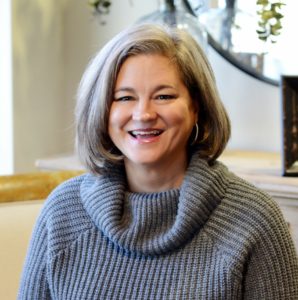
Emotional energy is an area I would really like to learn more about in 2022. Maybe we can explore this area together. For years I’ve been coaching and reminding my teammates to consider how they use their emotional energy, specifically after their regular work hours.
One example is making ourselves available for the calls we get after hours, when those conversations really could wait until the next day. Those calls take loads of emotional energy. And spending our hours dealing with those situations certainly takes a toll on us when that time is meant to refresh us.
We sometimes downplay these calls and call them venting sessions with our friends from work, but they can be huge energy suckers. Yet, there is a bond that forms with work friends, and these calls can seem necessary for some, and others may even consider them helpful. When we get down to the nitty-gritty, though, they can be wild, unleashed, emotional energy suckers.
Even before the pandemic, I found myself more and more not wanting to talk about work stressors/challenges after hours. I considered that to be my time to focus on me, even if it meant simply not thinking at all. (Cue mindless binge watching.) Over the years, I’ve become much more disciplined about this. When that call from a work friend comes, I either think or say, “Can this wait until tomorrow?” Certainly, there are times calls cannot wait and we need to address issues in the moment, but many of those calls can wait until our tank is refilled, or at least partially refilled.
The question remains, how do you refill the tank? I surprised myself the other night while at dinner with friends. We were all discussing staffing shortages in various fields. One of my friends runs a large company and was talking about the challenges he has covering shifts and so on. When I was asked or told “kind of like what you are going through, Julie,” I had to stop the screaming in my head and calmly say, “It’s not the same thing.” I’ve thought about that conversation for weeks now and how my quick-to-respond answer landed… landed with them and landed for me.
The emotional energy we expend outside of work hours is important for obvious reasons. The never-ending pressure, stress and burnout we are feeling in our field of long-term care right now is going to have long-term effects. How can it not?
When we are running on empty for this long, where will the emotional energy actually come from? This is much bigger than self-care. We all know what that is and that we should practice it; what I’m referring to is that emotional energy roller coaster that no matter how hard we’ve tried to get off the ride, one more climb, peak and screaming hill is right around the corner.
I don’t know about you, but I think we are going to have to figure it out for ourselves, because there doesn’t seem to be much of a conversation out there about shutting down the ride for our teams. Our staffing issues right now are much deeper than people out with positive cases of COVID. Our issues are people leaving the field, not wanting to enter the field, and pure exhaustion. I’m not sure that is the case in other fields.
Of course, I’ve heard of the impact on other fields, but like so many of you reading this we are living in this field. Talking about recovering and re-energizing our emotional energy tanks is something we should not only be talking about. We should have resources, time, patience and support as we look toward building a new roller coaster, one with less jarring hills and turns and more forgiving to our tired souls.
Julie Thorson’s was the 2018 recipient of the LeadingAge Dr. Herbert Shore Outstanding Mentor of the Year award. Thorson is currently a coach for the Leading Age’s Larry Minnix Leadership Academy. Her “Living Leadership” blog was named the 2016 “Best New Department” Bronze Award winner by the American Society of Health Publication Editors. The president and CEO of Friendship Haven, a life plan community in Fort Dodge, IA, Thorson is a coach’s daughter at heart. A former part-time nursing home social worker, she is a licensed nursing home administrator and completed Leading Age’s Leadership Educator Program last summer.
The opinions expressed in McKnight’s Long-Term Care News guest submissions are the author’s and are not necessarily those of McKnight’s Long-Term Care News or its editors.




